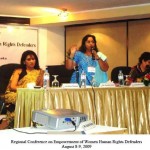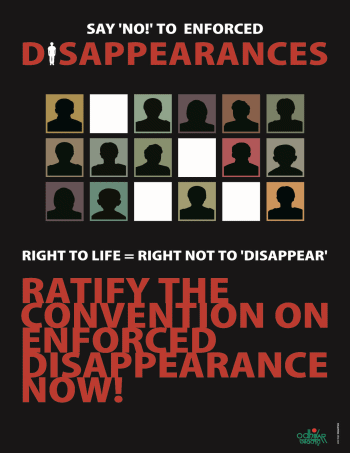 Since the early part of the last century, Begum Rokeya Shakawat Hussain was engaged in defending the human rights of women. Like many women of her time and as now she also used the notion of ‘Nari Mukti'(emancipation of women) meaning freedom from all forms of violence, discrimination and inequality. She worked hard till the day she died to achieve equality and empowerment of women. When we are discussing empowering women human rights defenders, I think we may ground us more concretely if we carry with us her insights of defending women not merelyas a biological entity, but defined by concrete history and socio-economic contexts including how situation of women is determined by education, religion and culture. Education to promote critical thinking was her strategic site of engagement to empower women and fight patriarchy. Emancipation to her did not mean emancipation of women egocentric individuals, but women as integral part of the community where they historically belongs. This is the reason why she was never confused about her task: defending the rights of Muslim women in a colonised and patriarchal society. Empowering of women was empowering her community to face challenges of colonialism. Her fight was on two fronts simultaneously colonialism and patriarchal structure of her society. The insight we get from her helps us to understand our task now. We defend the human rights of women in order to face the colonial legacies and at the same time the new phenomenon of imperial global structures, hegemony, war and violence, remaining fully aware that categories such as ‘woman’, ‘feminism’ and ‘gender’ are used as interventionist tools by predatory economies and cultures.
Since the early part of the last century, Begum Rokeya Shakawat Hussain was engaged in defending the human rights of women. Like many women of her time and as now she also used the notion of ‘Nari Mukti'(emancipation of women) meaning freedom from all forms of violence, discrimination and inequality. She worked hard till the day she died to achieve equality and empowerment of women. When we are discussing empowering women human rights defenders, I think we may ground us more concretely if we carry with us her insights of defending women not merelyas a biological entity, but defined by concrete history and socio-economic contexts including how situation of women is determined by education, religion and culture. Education to promote critical thinking was her strategic site of engagement to empower women and fight patriarchy. Emancipation to her did not mean emancipation of women egocentric individuals, but women as integral part of the community where they historically belongs. This is the reason why she was never confused about her task: defending the rights of Muslim women in a colonised and patriarchal society. Empowering of women was empowering her community to face challenges of colonialism. Her fight was on two fronts simultaneously colonialism and patriarchal structure of her society. The insight we get from her helps us to understand our task now. We defend the human rights of women in order to face the colonial legacies and at the same time the new phenomenon of imperial global structures, hegemony, war and violence, remaining fully aware that categories such as ‘woman’, ‘feminism’ and ‘gender’ are used as interventionist tools by predatory economies and cultures.
Rights women Bangladesh-Article-2009 (full text in English)




